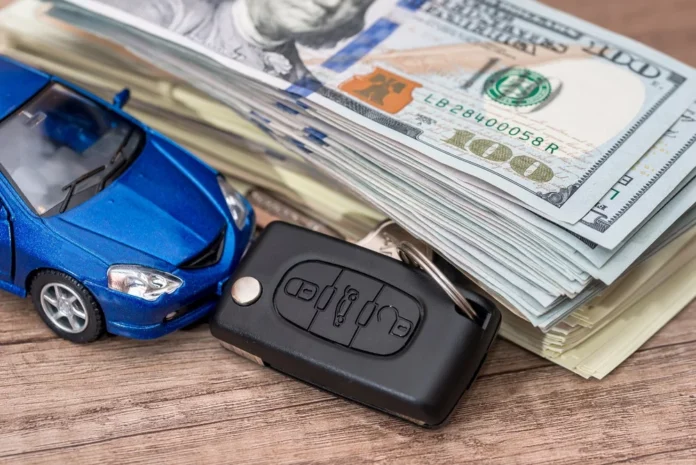Having bad credit can be a huge obstacle in obtaining a loan, but it doesn’t have to be. There are several options available for those with less than ideal credit scores who need access to loans. In this listicle, we will discuss eight strategies for accessing loans with bad credit and how you can use them to get the money you need.
1. Consider Title Loans

If you need money quickly and don’t have access to other sources of funding, 5 Star Loans could be a solution for you. These short-term loans allow you to use your vehicle title as collateral in exchange for a loan, meaning that if you fail to make payments on the loan, the lender can seize whatever property was used as collateral.
They tend to have high interest rates and short repayment periods, so it’s important to understand all of the terms before signing up for one of these loans. Be sure to also compare different lenders so that you can find the best deal possible.
And remember—by taking out a title loan, you are putting your car at risk; only borrow what is absolutely necessary.
2. Get A Cosigner
This is possibly the most common approach when it comes to getting a loan with bad credit—find someone else willing to sign onto the loan agreement as well. If that person has good enough credit, their score will help cover yours and make you more likely to get approved by the lender.
Be aware though that if you don’t make payments on the loan, the cosigner will be held responsible.
3. Apply For A Loan At Your Bank Or Credit Union

Credit unions are great options for those with bad credit, as they tend to have more lenient requirements than traditional banks. They offer competitive rates and some even have special programs designed specifically for those who have been denied by other lenders due to their credit score.
Since credit unions are nonprofit organizations, they typically focus more on helping individuals rather than making a profit, so it’s worth considering them as an option if you’re looking for a loan. Additionally, many credit unions have financial literacy classes and resources available that can help you build your credit over time.
4. Get A Secured Personal Loan
Secured personal loans work by requiring you to put up something of value as collateral in order to obtain the loan funds. This form of borrowing is often seen as risky since if you fail to make payments, the lender can seize whatever property was used as collateral.
That said, secured personal loans can be a viable option if you’re unable to find other sources of financing.
5. Look Into Peer-to-Peer Lending

Peer-to-peer lending networks allow people with bad credit to borrow from individual investors who are willing to take on the risk in exchange for higher yields than traditional investments.
While peer-to-peer lenders typically have stricter approval processes than banks and credit unions, they may still be an option depending on your credit score.
6. Get A Credit Builder Loan
These are specifically designed for those with bad credit who want to rebuild their scores over time. With this type of loan, you’ll be given a set amount of money that must be repaid in monthly increments over a certain period of time (usually two years).
The funds will go into an account where they won’t be available until the loan is paid back in full—but as long as you make all of your payments on time, your credit score should steadily improve.
7. Consider Alternative Financing

For those who can’t get approved from traditional sources, alternative financing may be an option. Companies such as short-term loan providers and merchant cash advance specialists offer funding to those with bad credit in the form of loans or advances that are secured against future sales.
These forms of finance can often provide a quick way to access funds when you need them, but it’s important to understand all of the terms involved before signing up for any type of loan.
Be sure to read through all the fine print carefully, watch out for hidden fees, and make sure that you’re comfortable with everything outlined in the agreement before committing to anything.
8. Consider Online Lenders
There are many online lenders that specialize in loans for those with bad credit. These companies often have more lenient requirements than traditional lenders and can provide the funds you need even if you don’t have a great credit score.
Just make sure to read all of the terms carefully and understand any associated fees or charges before signing up.
Just make sure to read all of the terms carefully and understand any associated fees or charges before signing up. It’s crucial to have a comprehensive grasp of the loan agreement to avoid any unexpected financial burdens down the line. Scrutinize the interest rates, repayment schedules, and potential prepayment penalties.
By delving into the finer details, you can make informed decisions about your financial commitments and devise a feasible plan for repayment.
Moreover, being aware of any hidden fees or charges will empower you to compare different online lenders effectively, enabling you to choose the option that aligns best with your budget and financial objectives.
For additional guidance on improving your credit score and managing your finances, you might find valuable insights at https://www.couponchief.com/how_to_improve_your_credit_score.
9. Check Into Government Programs

Many local, state, and federal government agencies offer loan programs designed specifically for those with bad credit. These typically involve lower interest rates and may also require collateral, so it’s important to do your research before applying for one of these loans.
Additionally, there are various grants available from certain organizations that can help cover costs associated with starting a business or paying for school.
10. Borrow From Friends And Family
If you need money quickly, one of the best options is to borrow from friends or family members. Make sure to draw up a contract that outlines all associated terms and conditions, as well as repayment schedules and timelines.
This will help ensure that everyone remains on the same page and can help avoid any uncomfortable conversations down the line.
In Conclusion
Accessing loans with bad credit can seem like an impossible task, but it doesn’t have to be. With the strategies listed above, you should be able to find a solution that works best for your needs and get the money you need without having to worry about your credit score.
Remember though that no matter what type of loan you end up taking out, it’s important to read all of the fine print and ensure that you’re comfortable with all of the terms before signing on the dotted line.








